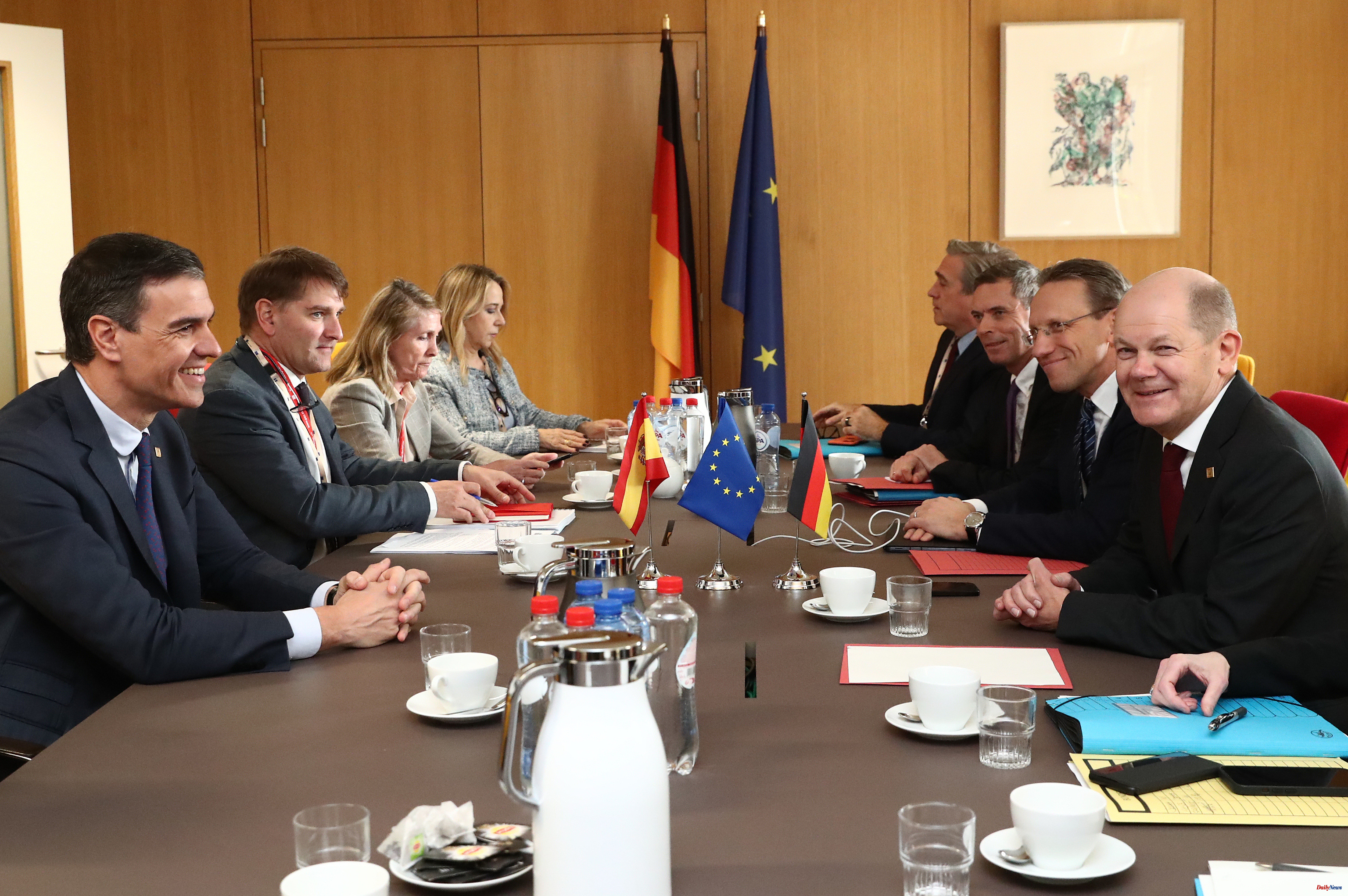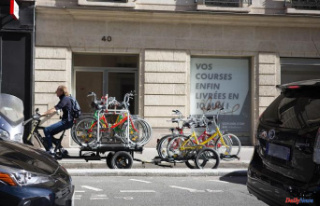"After a century of struggle, we have left humiliation behind. The great renaissance of the Chinese nation is on an irreversible path. China must actively participate in global governance and add stability and positive energy to world peace." Xi Jinping's speech was interrupted by thunderous applause from the almost 3,000 deputies who surrounded him in the behemoth Tiananmen Chamber, where the speaker had just broken precedents by being elected president for a third term.
The words of the strengthened supreme leader to close the last annual political conclave left a message for the rest of the world: China, after three years of self-isolation due to its pandemic policies, is now ready to dominate the international stage.
To achieve this, Xi has launched a super diplomatic offensive in which Spanish President Pedro Sánchez will participate, who will become the third European leader -after German Chancellor Olaf Scholz and Belarusian Lukashenko- to set foot in the Asian country since it became to open to the world after three years trapped in the prison of Covid zero.
From the Chinese Foreign Ministry they point out that the invitation to Sánchez, which Moncloa had been pursuing since last year, was extended for the celebration of half a century of diplomatic relations between Beijing and Madrid. But, beyond the anniversary, they stand out in favor of the Spanish that has been gaining international presence and that this year will be a very important interlocutor as rotating president of the Council of the European Union.
"Spain has always been very supportive. It has always remained quite neutral, although some have tried to drag the Spanish government into the warlike and anti-Chinese positions of the United States and NATO. Without a doubt, it will be a key player this year that will help us to improve relations with the EU," says a senior Chinese official who regularly participates in the procession that receives foreign delegations in the capital.
"Relations with Spain have been developing in a healthy way for some time," said Wang Wenbin, spokesman for the Chinese Foreign Ministry, at a press conference on Thursday. Sánchez will meet Xi in Beijing on Friday the 31st, but before that the Chinese leader will receive a visit from the Brazilian Lula da Silva, with whom he hopes to boost trade relations. Already at Easter, he is also waiting for the visit of the Frenchman Emanuel Macron.
Beijing's diplomatic acceleration began with the boost in morale that became the mediator that led two adversaries such as Iran and Saudi Arabia to reach a historic agreement to restore their bilateral relations. A hit of influence from the Chinese regime in the Middle East, where its presence has always had a very limited weight, just a few days after promoting its peace plan in Ukraine: respect for the sovereignty of all countries and a ceasefire. Those were the first points of a letter viewed with suspicion by the United States and the European Union, but welcomed by kyiv.
The next step for statesman Xi Jinping was to visit the home of his old friend Vladimir Putin. The Kremlin rolled out the red carpet for its powerful Chinese neighbor, knowing that it was going to provide it with the economic oxygen it so badly needs in the face of the rain of sanctions. Xi did not disappoint his partner. He ratified his strategic backing and tightened trade deals, but he also cashed in by getting Putin to commit to using the Chinese yuan in foreign trade deals with countries in Asia, Latin America and Africa. What Xi also did was press his country's "impartial position" on Russia's invasion of Ukraine.
This morning, from Brussels, where he is attending the meeting of EU heads of state and government, Pedro Sánchez said that he will convey to the Chinese president that any peace process in Ukraine must be based on the conditions established by Kiev, insisting on the need to respect the country's territorial integrity, violated by the military invasion ordered by Russian President Vladimir Putin.
"It is important to know first-hand his position on peace in Ukraine and to convey to him that it will be the Ukrainians who establish the conditions for the start of that peace, when it arrives," Sánchez stated.
Some international scouts had been waiting for some sign that Xi, in his role as peacemaker, would discuss his peace plan face to face with Putin. Officially, there was no apparent effort on the part of the Chinese leader. On the game board of the autocrat in Beijing, oriented towards a higher plan such as achieving hegemony in a new world order and fighting the United States in the new Cold War, he needs his junior, but more powerful partner, which he still is now. same Russia. Xi, in a balancing act, intends to support Putin while he redirects relations with Europe and continues to spread influence throughout the so-called global South.
"A change is coming that has not happened in 100 years. And we are driving this change together," Xi told Putin, supported by an interpreter and surrounded by cameras, last Tuesday after finishing the meeting in Moscow. "I agree," replied the Russian leader. As Xavier Colás, EL MUNDO correspondent in Russia, highlighted in his chronicles, the Chinese leader was seen to be much looser, and less tense, than his counterpart during the summit.
Xi seems comfortable in his new diplomatic deployment. Now I need to pick up the phone and call Volodimir Zelenski. Since his friend Putin ordered the attack on kyiv, the Chinese have not spoken to the Ukrainian president, despite Zelensky's attempts. But if the agenda planned by Beijing is fulfilled, soon both leaders will have that talk that could be transcendental.
More than a year after the start of the war, Xi has still not condemned the Russian attack and echoes part of the Kremlin's narrative, blaming the West for "undermining global stability." But neither does he seem to have backed Moscow militarily, despite Washington's insistence, which has been saying that Beijing has sent weapons to the Russian army - or that it plans to do so - from the first minute of the conflict. This week, Jens Stoltenberg, NATO secretary general, said that the Alliance had no evidence that China was supplying Russia with weapons or ammunition to continue the offensive on Ukraine, a country that Beijing has assisted with humanitarian aid to through the Red Cross of the Asian giant.
According to the criteria of The Trust Project












